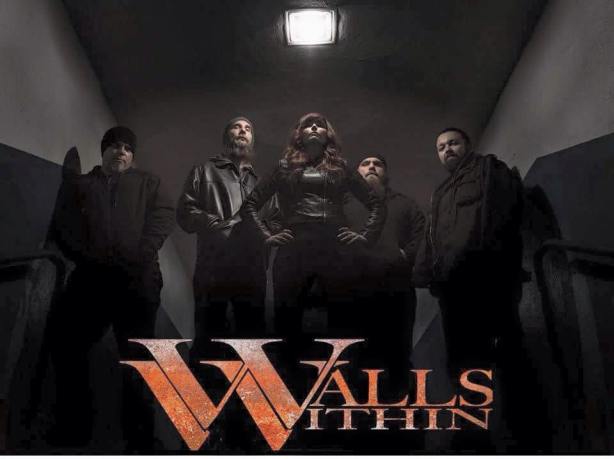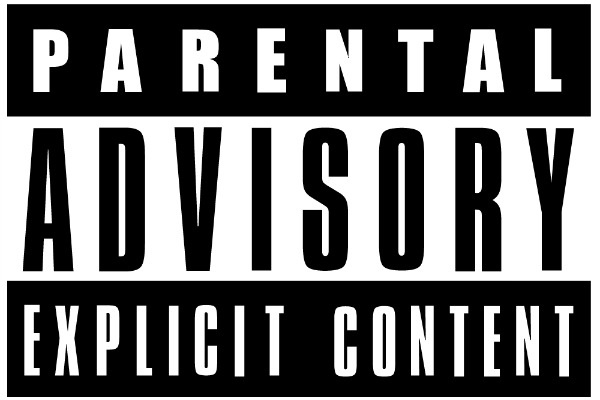I’m a day late in posting this one, for which I’d apologize, but hey, better late than never, right?
Last weekend I attended the Circle Pit Conservative’s Devastation Fest 2 in Anderson, IN, a day-long offering of some of Indiana’s best and most brutal metal bands. This show could pretty much be considered a who’s-who of the Indiana metal scene, with long roots in the local scene, going all they back to the 80’s, as well as representing the uniting forces of Midwesthell, with people in attendance and otherwise supporting from The Forge, The Doom Room, Midwesthell Melodies, Hert Promotions, and of course, the CPC guys. It was much more than just a bunch of bands coming together to honor and memorialize two of our scene’s recently departed (Jason McCash of The Gates of Slumber, and Tom Ball of Radiation Sickness), it was also a message to the scene at large that Midwesthell is here, we are a force, and things are changing.

Lawbringer @ Devastation Fest 2 6/21/1
[Photo Credit: SickenDesigns]
The show was great. Solid line up of bands that included AnarchAtecture, Lawbringer, Legion, Born Under Burden, Armored Assault, Necrophagus, We’d Be, and the aforementioned Radiation Sickness. Every single band threw down, and they threw down hard. It was unadulterated brutality, and I can’t help but wonder if seismographs weren’t registering the moment, that’s how heavy it was. The sound, despite being an absolutely -minimal- set up (only the vocals and the kick drums were mic’d–everything else was raw straight from the stage), was perfect; it was loud, in your face, and captured every band’s sound the way they deserved to be. The venue was an AmVets Post, with a stage that was accessible, and made it partly a floor show, which Lawbringer did 100% of the way. Nick Maxon of We’d Be was busy in the pit with the fans when he wasn’t handling his vocal lines during their set, and the fans were able to get right up and interact with every band.
That said, I have some thoughts, and some of them relate to my post from Sunday about the Outhouse United show last Friday at Centerstage.
I’m personally not a fan of all day fests–there’s nothing wrong with them necessarily, it’s just my thing. Maybe I’m old, maybe I’m just not ‘trve cvlt’ enough, maybe… I just suck. For me, there’s a simple fact: while I loved every band and am a fan of all of them, as a radio guy, I spend HOURS a day listening to music. Not just passively, like the average listener, but actively, both as a musician and as part of my job in screening music for airplay as well as from a critical standpoint as a reviewer. This means that my ears get tired, and sometimes I just need a break. ‘Fest’ shows are even more taxing for me when every band on them sounds similar enough that at a certain point it’s difficult to distinguish them from each other–I’m one of those guys that needs variety to stay engaged, and I dare say that with the exception of those fans that are super hardcore about their favorite genres, this applies to most fans. I don’t have hard numbers to back this opinion up, only observation: it’s been my experience that the shows that do best are the ones that feature bands with enough difference between each other that the listener can stay engaged because they don’t feel like they’re hearing the same thing over and over for hours on end.
Another issue I have is set lengths–very few ‘local’ (or even ‘regional’) bands have the kind of draw and holding power to need to play hour-long sets, and at an all-day show, by the third or fourth band, those hour sets start to feel a lot longer, especially if there’s little differentiation from one band to the next. Again, some of this is personal preference, but some of it comes from my time in the scene, both on stage and from simple observation: all but the most dedicated and committed (committable?) fans tend to get bored pretty quick. At shows with large audiences, this is less the case, because a mob mentality takes over, and let’s face it: we ALL thrive on the energy of being there, being part of the masses, being part of the bigger picture. But at smaller shows, the energy is different, because there are fewer people to sustain it, and if just a few people need to take a break, it’s much more noticeable and there are fewer people to make up for it.
Interestingly enough, this creates a vicious cycle: Promoters are, rightly so, of the mindset that they should be billing every show like it’s going to be the biggest, baddest show around (if they’re not, they’re not doing their job). But when the attendance isn’t what they planned for, they tend to feel let down, by the scene that they feel didn’t support them, but also because they feel that they let down the bands they promised a great show to. Promoters get that difficult job of trying to sell something not knowing how it’s really going to turn out, especially if they’re working at the local level, and I don’t envy them that. However, there has to be some kind of balance struck between planning for what’s most likely to happen (smaller shows with lower attendance) and what we all hope to achieve (bigger shows with packed houses). It’s a tough job to be sure, and I don’t envy the guys that are trying to make it happen; in fact, I applaud them, and I fully support them, and will do so however I can–such as I did at this show when I was asked to MC it.
I think that part of the problem some promoters have is that they get an early taste of success and start reaching too far too fast, expecting more than they really know is realistic. They put the work in, but they lose sight of the market they’re working in, and instead of building shows around that market, they reach for the stars, hoping for that magic moment, and when it doesn’t happen the way they had hoped it would, they’re naturally disappointed.
Devastation Fest had an audience turn out that was disappointing to the promoters, and I say that only because they have been pretty vocal about it themselves on social media. Dan and Nate are guys I know, and they’re good guys trying to do a good thing for a scene that they love and want to see life return to, and I completely empathize with their feelings about the turn out. We ALL want big shows with packed houses for local shows… but the scene isn’t ready for that yet. Not because people don’t want it, but because people are afraid to be the ones taking chances. Dan and Nate took a chance on creating one of these shows, and while it didn’t turn out the way they might have hoped, the show itself was a resounding success, because the people that were there and the bands that played bought into it. They took what was given to them and made it theirs. They owned it. As they should have. The people that weren’t there only know about what they missed because those who were there have made it a point to say publicly how awesome it was.
Because it was awesome.
Every show has something about it that could be done better. Every show has something that goes wrong. Me? I’ll take a low-attendance show as the ‘problem’ with a concert any day over technical difficulties, a band bailing, or anything else like that. They key is taking the sum total of all the things that happened, and weighing them against each other. And no matter what could have been better, Devastation Fest 2 -was- a success, and I expect that next year it will only be that much better.



